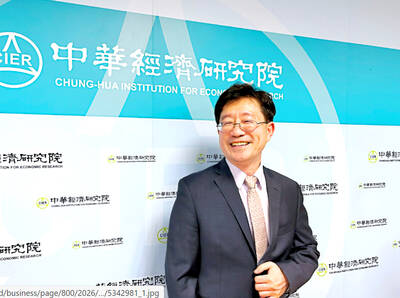Chinese President Xi Jinping’s (習近平) statement yesterday on the so-called “1992 consensus” has put the Chinese Nationalist Party (KMT) in a hard spot, National Cheng Kung University professor Hung Ching-fu (洪敬富) said.
The “1992 consensus,” a term former Mainland Affairs Council chairman Su Chi (蘇起) admitted to making up in 2000, refers to a tacit understanding between the KMT and the Chinese Communist Party that there is “one China,” with each side having its own interpretation of what “China” means.
The KMT’s consensus was made intentionally vague, but Xi’s statement has removed that vagueness by adding the “goal of unification,” Hung said.
That placed the KMT in an awkward position, and China could, like KMT Kaohsiung Mayor Han Kuo-yu (韓國瑜) had in last year’s local elections campaign, begin linking the consensus to the economy, Hung said.
Tamkang University’s Graduate School of China Studies professor Andy Chang (張五岳) agreed, saying that Xi’s statement marked a departure of the Chinese definition of the consensus from that of the KMT.
It has also affected perception of the consensus by the Democratic Progressive Party (DPP) and the Taiwanese public, Chang said.
China has adopted the method of handling the mention of the consensus on two levels, Chang said.
Should the consensus be mentioned in relation to cross-strait ties, or negotiations between high-ranking civil servants on either side, the Chinese would place more significance on the issue, he said.
However, should the consensus, or its concept, be mentioned in lower-level interactions, such as city-to-city relations, the Chinese would place less significance on the usage of the term or concept, Chang added.
This two-level handling was why Taipei Mayor Ko Wen-je (柯文哲) was able to facilitate interaction with Shanghai when he said “both sides of the [Taiwan] Strait are family,” but would probably meet with failure if he were to use it in running for the presidency, Chang said..
Xi in his concluding remarks said: “It is the global consensus to maintain the one China principle, and the affairs of the Chinese should be decided by the Chinese and not by foreign powers. China’s unification will not harm any nation’s benefits, including their economic benefits in Taiwan.”
Compared with the statements made in 2008, the 30th anniversary of China’s original Letter to “Taiwanese compatriots,” Taiwan and China has no basis of mutual trust, have essentially severed their only link of communication and faces the additional difficulty of the US-China trade dispute, which is straining US-China relations while further solidifying US-Taiwan relations, Chang said.
Chang said that Xi’s comments are aimed partly at the US.
President Tsai Ing-wen’s (蔡英文) New Year’s address and “Xi Five Points” are both statements to the international body and are less concerned with whether their statements would receive a positive response from each other, Chang said.
Tsai’s address had made clear the DPP administration’s stance, allowing the Taiwanese public and the international community to understand what lines the government will not cross, Chang said.

The Grand Hotel Taipei on Saturday confirmed that its information system had been illegally accessed and expressed its deepest apologies for the concern it has caused its customers, adding that the issue is being investigated by the Ministry of Justice Investigation Bureau. The hotel said that on Tuesday last week, it had discovered an external illegal intrusion into its information system. An initial digital forensic investigation confirmed that parts of the system had been accessed, it said, adding that the possibility that some customer data were stolen and leaked could not be ruled out. The actual scope and content of the affected data

DO THEY BITE IT? Cats have better memories than people might think, but their motivation is based entirely around the chance of getting fed Cats can remember the identity of the people who fed them the day before, Taipei-based veterinarians said on Friday, debunking a popular myth that cats have a short memory. If a stray does not recognize the person who fed them the previous day, it is likely because they are not carrying food and the cat has no reason to recognize them, said Wu Chou Animal Hospital head Chen Chen-huan (陳震寰). “When cats come to a human bearing food, it is coming for the food, not the person,” he said. “The food is the key.” Since the cat’s attention is on the food, it

Taiwan must act to preempt potential Section 301 investigations as US President Donald Trump moves to a new tariff strategy, following a US Supreme Court ruling that voided tariff measures, an academic said yesterday. Countries running the largest trade surpluses with the US face a growing likelihood of Section 301 investigations, Chung-Hua Institution for Economic Research president Lien Hsien-ming (連賢明) said. Section 301 refers to a provision of the Trade Act of 1974 that allows Washington to impose retaliatory tariffs over perceived unfair trade practices, including the running of large trade surpluses. Because Taiwan has become the fourth-largest source of the US’ trade

People hold incense and pray with offerings in front of Taipei’s Kuanghwa Market yesterday. The fifth day of the Lunar New Year is traditionally about welcoming the God of Wealth, during which companies and shops set off firecrackers to celebrate their reopening and pray for good business in the new year.